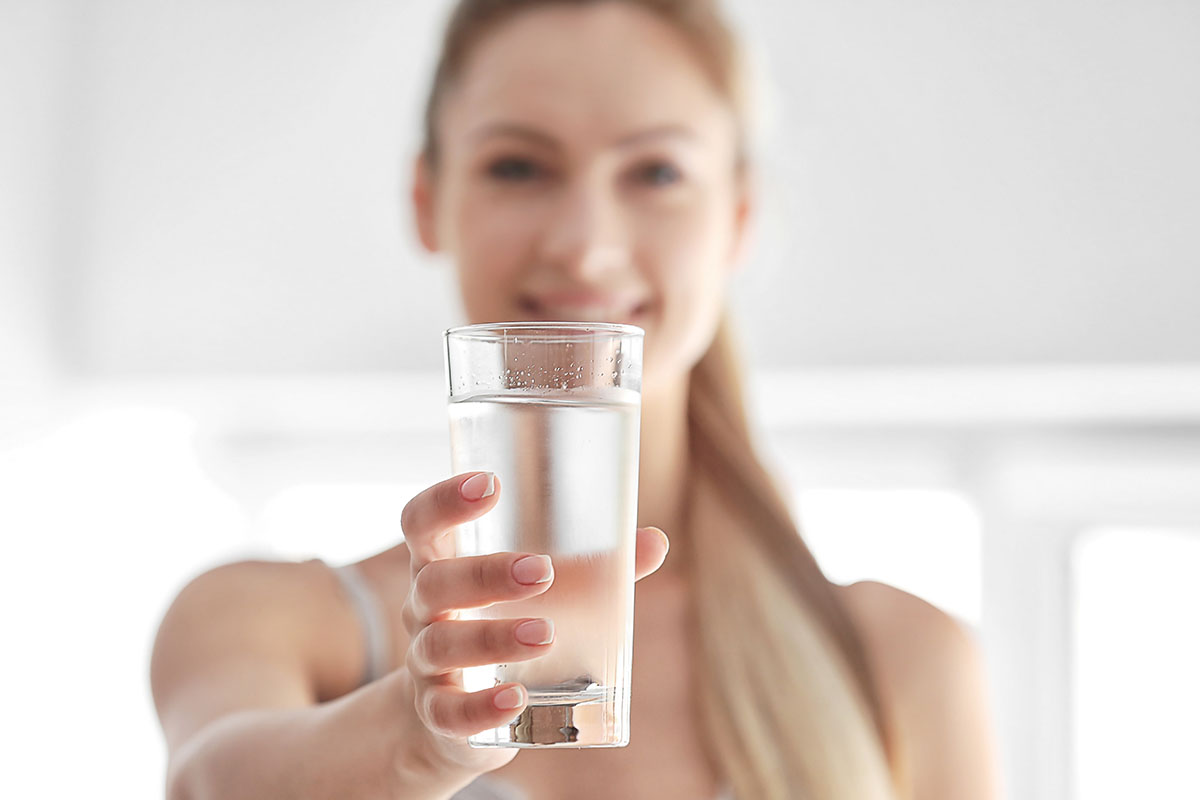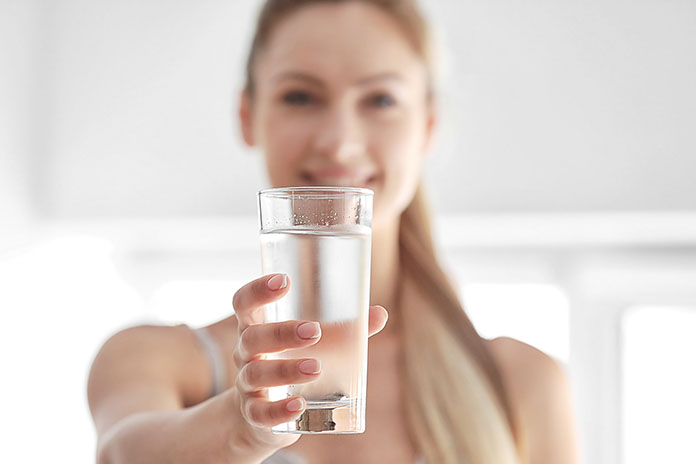
It’s likely that you’ve heard or read about the important nutrients that your body needs, such as vitamins, minerals, antioxidants, protein, fiber and the like. But chances are that you don’t frequently hear about one of your body’s most vital nutrients—one you need to replenish several times a day—which is water.
Granted, you can’t get water in supplement form, but it’s a nutrient, and it’s vital for your body to function. If you think about it, your body can survive for weeks without food or other nutrients, but it can only survive for about three days without water. And like other nutrients, water is considered to be essential because your body’s demand for water is greater than what it can produce on its own. You actually lose water daily through evaporation, respiration, sweating and elimination.
Water helps to maintain your health in a number of ways, including:
- It regulates your body temperature. When you get too hot, you sweat; a way of releasing water to cool you off through evaporation.
- Water supports the digestive process and keeps food/waste moving through your digestive tract.
- Foods with a high water content act as a way to help you control calorie consumption. Soups, stews, fruits and vegetables that are high in water make you feel fuller faster than those foods with less water.
- Water is critical in controlling your blood pressure.
- Water helps boost your immune function by shepherding oxygen into your cells and flushing harmful toxins your body.
- Water controls the balance of electrolytes in your system. This includes sodium, potassium chloride and bicarbonate. Electrolytes are substances that carry a positive or negative electrical charge when they’re dissolved in water, and they help regulate your body’s nerve and muscle function and regulate acid (pH) balance.
- Your brain is 73% water—higher than the rest of your body, which is about 60%. It’s fair to say that water is crucial to good brain function. Becoming dehydrated can give you a headache, affect your mood, reduce cognitive function, diminish your memory and even make you more susceptible to pain.
- Water makes you look healthier, too. That’s because when your skin is well-hydrated, it’s plumped up and glowing. Dehydration makes your skin look parched and more wrinkled—and it slows healing time for wounds.
In Chinese medicine, the abundance or the absence of water is one component of a clear diagnosis. The balance of fluids in your body is a cornerstone of good health. When you become oversaturated, you may experience water swelling in the form of edema, or lose excess water through urination. If you become dehydrated, your brain tends to signal you to drink more by triggering thirst.
However, in Chinese theory, water balance goes deeper. When your body’s fluids are out of balance, you may experience a number of symptoms that at first seem unrelated to water. When your body is too dry, you may get headaches, dry skin, brittle nails, dry hair, a scratchy throat and even constipation. In contrast, too much moisture in your body is a condition called dampness, and that moisture can pool and cause symptoms such as edema, an overall feeling of heaviness, yeast infections, athlete’s foot, and moist rashes that tend to form blisters.
While it may seem as simple as drinking more water if you’re dry and drinking less water if you become too damp, treating water imbalances can be a little more complicated than that. The good news is that a practitioner of acupuncture and Chinese medicine has a number of tools to treat conditions that arise from an imbalance of moisture. Acupuncture treatments can be focused on draining water, drying dampness and even generating fluids is necessary. In addition, there are many herbal formulas that are designed to address conditions related to dampness or dryness. The right formula for you would be prescribed based on your symptoms and health history. Food therapy can also be a good choice in addressing both dry and damp conditions. In some cases treating dryness goes beyond just drinking more; it may involve adding to your diet healthy fats, nuts, seeds, avocados and other foods that are inherently moistening.
When it comes to how much water you should drink each day, the answer isn’t clear, but experts suggest roughly 32 to 64 oz. a day, based on a number of factors. Your needs depend on physical activity levels, medications you’re taking, age and your overall health. However, it’s important to know that thirst isn’t always a reliable gauge for when to hydrate, especially as you get older. This means that you need to drink water whether you’re thirsty or not.
If you need help with dampness, dryness or water balance issues, give our clinic a call. We’re happy to answer your questions and help you get back on the right track.

Cindy Chamberlain is an acupuncturist in Overland Park, KS and the founder of Eastern Healing Solutions, LLC. She is licensed in Kansas and Missouri and has been practicing traditional Chinese medicine since 1996.


